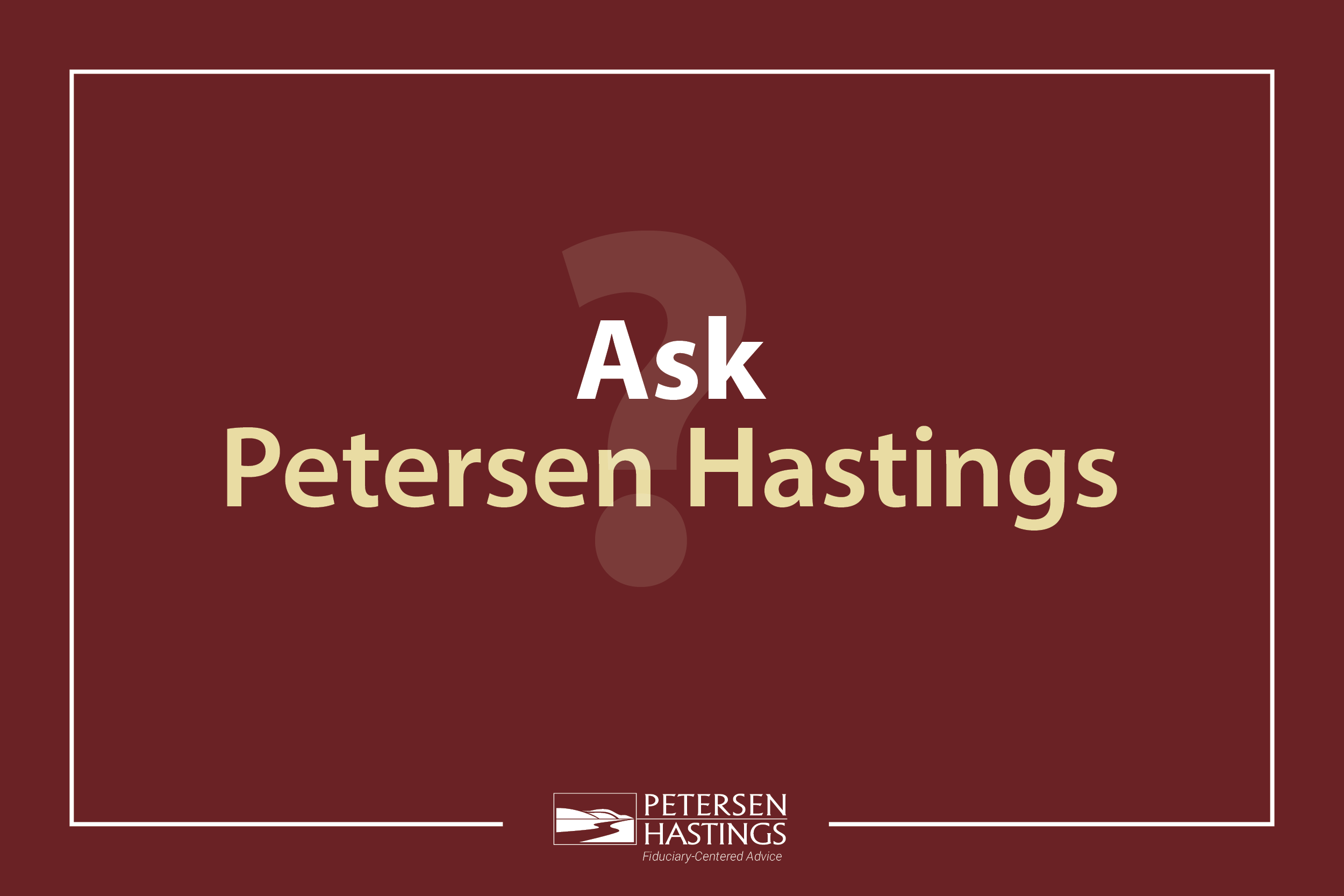Video: Ask Petersen Hastings – What is a fiduciary and how might it pertain to my investments?

It comes as no surprise that many people can be somewhat skeptical about hiring a wealth advisor. So, how do you select a wealth advisor that you can trust? And how do you find an advisor that legitimately puts your interest above their own? In this installment of Ask Petersen Hastings, Wealth Advisor, John Keyes, addresses the difference between the fiduciary standard vs. suitability standard.
What is a fiduciary and how might it pertain to my investments?
Video Transcript:
Hello, my name is John Keyes, Wealth Advisor at Petersen Hastings.
One word that has become much more prevalent in the investment industry over the past couple years is fiduciary.
While people and companies have been acting as fiduciaries for quite some time, this concept was thrust into the mainstream a couple years ago when the Department of Labor brought up the idea that advisors should be held to a higher standard and act with the best interest of the client when working with retirement accounts.
So, what is a fiduciary and how might it pertain to my investments?
Working with clients and their investments, there are two standards: fiduciary and suitability.
An advisor’s fiduciary duty means the advisor must, at all times, serve the best interest of its client and not subordinate its client’s interest to its own. In other words, the investment advisor cannot put its own interests ahead of the interests of its clients.
Under the suitability standard, when a broker recommends that you buy or sell a particular security, your broker must have a reasonable basis for believing that the recommendation is suitable for you. In making this assessment, your broker must consider your income and net worth, investment objectives, risk tolerance, and other security holdings. An advisor working under the suitability standard may, but is not required to, act in the client’s best interest.
To me, acting as a fiduciary affects how I work with clients in the advice I provided. Acting in the client’s best interest takes into consideration more than just the criteria I mentioned earlier. Additionally, our responsibility as a firm doesn’t stop after the trades are placed.
We are obligated to constantly monitor client’s investments and financial situations.
At Petersen Hastings, we take this responsibility seriously. As an RIA, the SEC requires us to be a fiduciary. We choose to work with the Centre for Fiduciary Excellences who performs a 3rd party audit on Petersen Hastings on a yearly basis to make sure we are still conforming to these standards.
If you would like to have a further discussion around this topic or would like to discuss your financial situation, please reach out to me using the contact information provided below.
Take care.
